How To Add Expected Graduation Date On Resume?
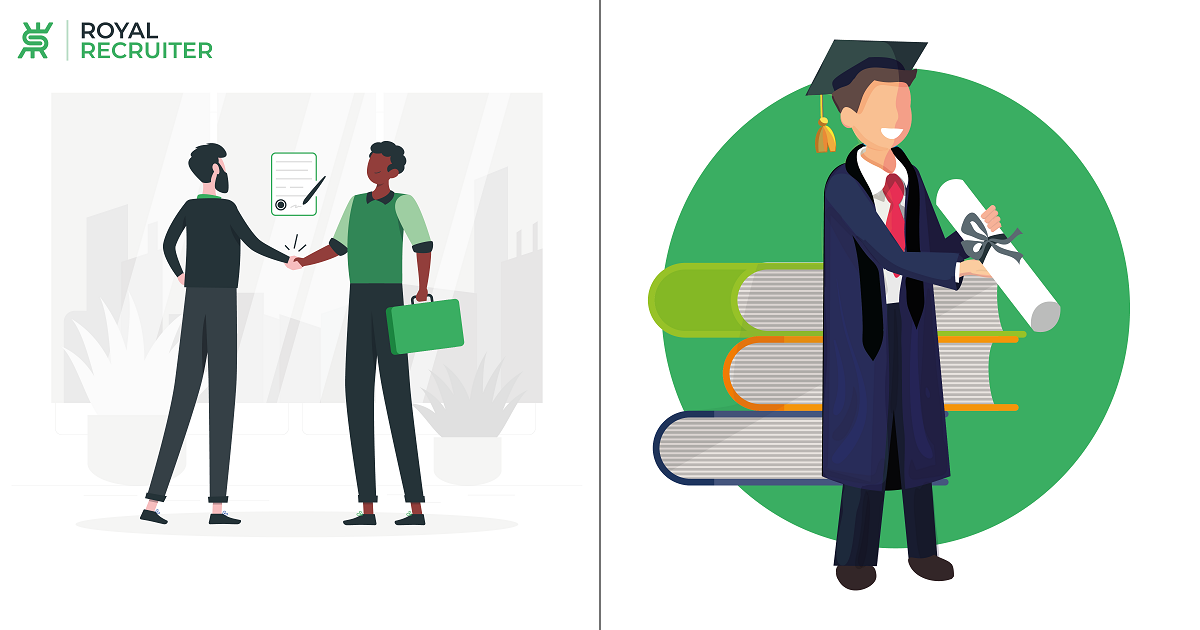
The expected graduation date on your resume is when you’ll walk out of your college, high school, or university with a certificate. But how to add the expected graduation date on my resume? Find out here.
Graduation is one of the most significant achievements in one’s life. Graduation exposes a person to a sea of opportunities. Graduation determines your prospective job roles, salary, and many more.
When applying for jobs, including an expected graduation date is crucial. But most candidates are worried or not sure about how to include the expected graduation date on their resume.
In this blog post, we’ll provide guidance on when and how to include your expected graduation date on your resume, what to do if you don’t have one, etc.
What Is The Expected Graduation Date?
The expected graduation date is simply the date you expect to complete your degree program. It could be the date you are scheduled to finish your courses, or the date of your final exam, depending on your school’s or university’s policies.
This date is important to include on your resume because it helps employers understand when you will be available to start a job or can start work full-time because most students tend to work part-time before completing their graduation.
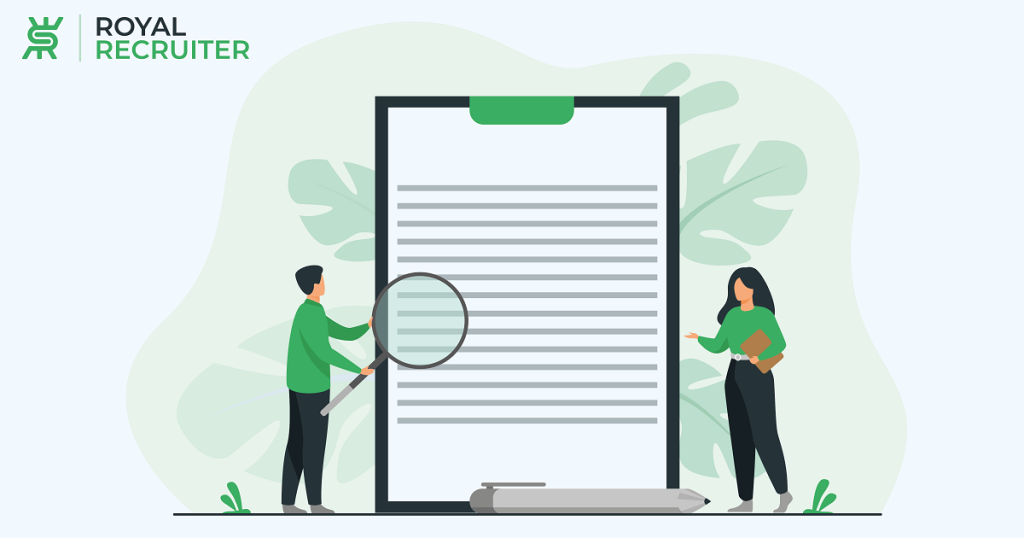
When To Include An Expected Graduation Date On Your Resume
Most of the time, a job seeker includes approximate graduation in two different scenarios; the first time is when they’re studying, and the second time is when they’re about to graduate recently or within a short time.
- If you’re a current student:
Indicating your expected graduation date can help potential employers understand your timeline for obtaining a degree.
Additionally, an approximate graduation date is especially important for entry-level positions, internships, or job training programs where your educational background is a key factor.
Most employers and organizations prefer to hire or recruit candidates who are about to graduate soon and can immediately join the company after working part-time, in internships, or in training programs.
- If you’ve recently graduated but haven’t yet received your degree
Many companies only recruit candidates who’ve already completed all the courses and will graduate recently. If you’re applying to one of those companies, you have to mention the expected graduation date.
Here are 9 best resume summary examples for students to help you write great summaries.
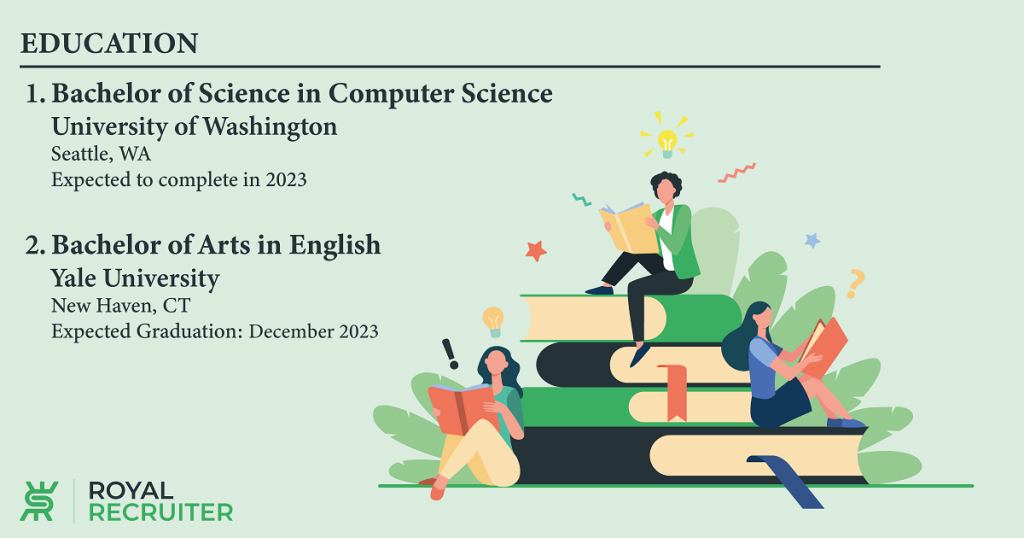
How To Include an Expected Graduation Date on Your Resume
Adding the expected graduation date on your resume is a confusing task. So where to include the date? On top of your subject name? Below institution name or other?
The expected graduation date should be included under the education section of your resume. You can include the date in a separate line or right next to your degree.
If your graduation date is more than six months, indicate the month and year. If it’s less than six months, use “Expected graduation: Month/Year” or “Anticipated graduation: Month/Year.”
How do you write the expected graduation date? There are many ways to write the expected graduation date on your resume. No matter which way you write, there are some general guidelines that you should follow:
– Write the name of your degree or diploma program, followed by a comma. For example, a Bachelor of Science in Computer Science,
– Write “Expected” followed by the month and year or just your graduation year. For example, Expected May 2023, Expected to complete in 2023, or Expected to complete in the beginning/middle/ at the end of 2023.
Here is an example of how it would look on your resume:
Here are a few examples of what it should look like:
1# Bachelor of Science in Computer Science, University of Washington, Seattle, WA, Expected May 2023
2# Bachelor of Arts in English, Yale University, New Haven, CT
Minor: History
Expected graduation: December 2023
What To Do if You Don’t Have An Expected Graduation Date
Until now, we’ve learned what the expected graduation date is, how to write them on a resume, and examples.
But what if you don’t have an expected graduation date? Or unsure when you will finish your degree or have taken a break from your studies?
If you’re not sure when you’ll be graduating, or your course coordinator hasn’t informed you about that. You can simply mention your degree is “in progress” instead of including any anticipated completion date.
Additionally, you can speak to your academic advisor or program director for guidance or an estimate of when you will graduate.
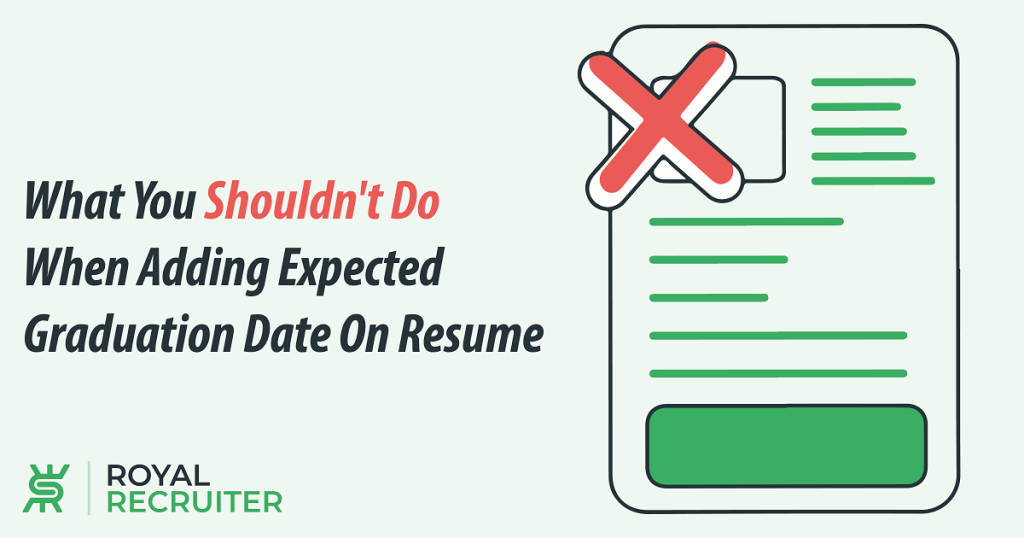
What You Shouldn’t Do When Adding Expected Graduation Date On Resume
When writing about your expected graduation day, there are some practices you should avoid doing because most of these practices are unethical and are not welcomed in the corporate world.
Firstly, it’s essential to be truthful about the expected graduation date. Don’t lie about the date to make yourself look prepared for hire or to impress employers/hiring managers.
If you don’t know the exact date, don’t guess. It’s better to say that you’re uncertain than to provide false information. Inaccurate information can damage your credibility and reputation.
What you can do instead is give a hint. For example, if you’re confident that you will graduate in 2024 but are uncertain about the exact month and day, you can simply say, “Expected to graduate in 2024.”
When you add this to your resume, you’re technically telling the recruiters or hiring managers that you’ll graduate in 2024 but are not exactly sure when. This might sound awkward, but this is a good way to talk about your expected graduation date.
Click to learn How to add resume-relevant coursework.
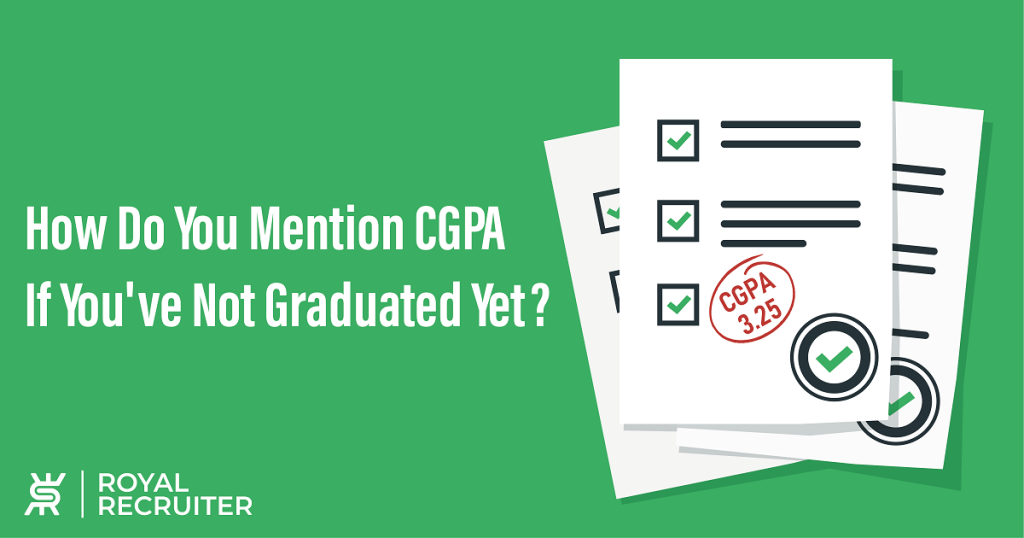
How Do You Mention CGPA If You’ve Not Graduated Yet?
One of the most common questions among job seekers who have not graduated is, “What CGPA should I mention then?” A critical situation, isn’t it? As you’ve not graduated yet, that means you have no idea about your final accumulated result/CGPA.
If you don’t know your result, then what will you mention? Well, the solution is simple. You should mention your last combined CGPA! It could be either your last semester’s or academic year’s results.
Another thing you can do is mention an expected result. For instance, if your total CGPA before the final/last semester or academic year was 3.25; you can say expecting to get
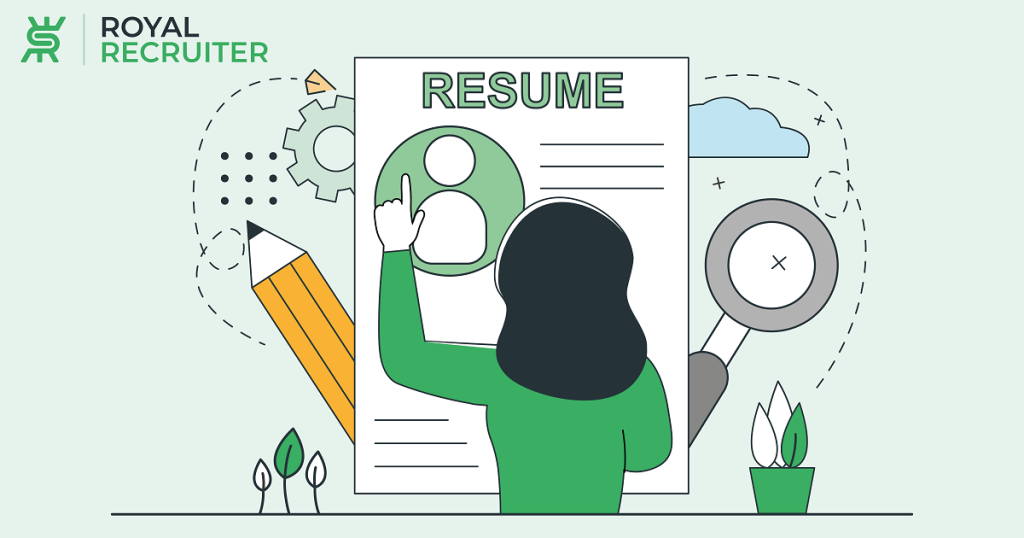
What Are The Common Cases Where You Don’t Need To Add Expected Graduation Date?
However, what happens if you don’t have an expected date to include? Is it still important to list a timeline for your education or experience?
The answer to this question may depend on your situation. Here are a few scenarios to consider:
Still have classes: If you’re still attending classes and not sure when you’ll graduate. In this case, it’s perfectly acceptable not to include an expected graduation date. You can just list the degree program you’re pursuing and the name of your institution. When you’re closer to finishing your program, you can update your resume with a more specific timeline.
Left some courses: If you’ve some courses left to get your degree. In this case, you can list the relevant courses you’ve taken and any certifications you’ve earned. And you can mention “In Progress.“
You don’t have any formal education or training: What if someone doesn’t have formal education or training? You’re not required to put anything in if you don’t have any education or training.
However, it’s important to note that not including an expected date of graduation on your resume might discourage potential employers (if you’re studying). They may assume that you’re not taking your education or career seriously or that you don’t have a clear plan for your future.
Read & Know the best Extracurricular Activities For Resume which will benefit you in getting hired
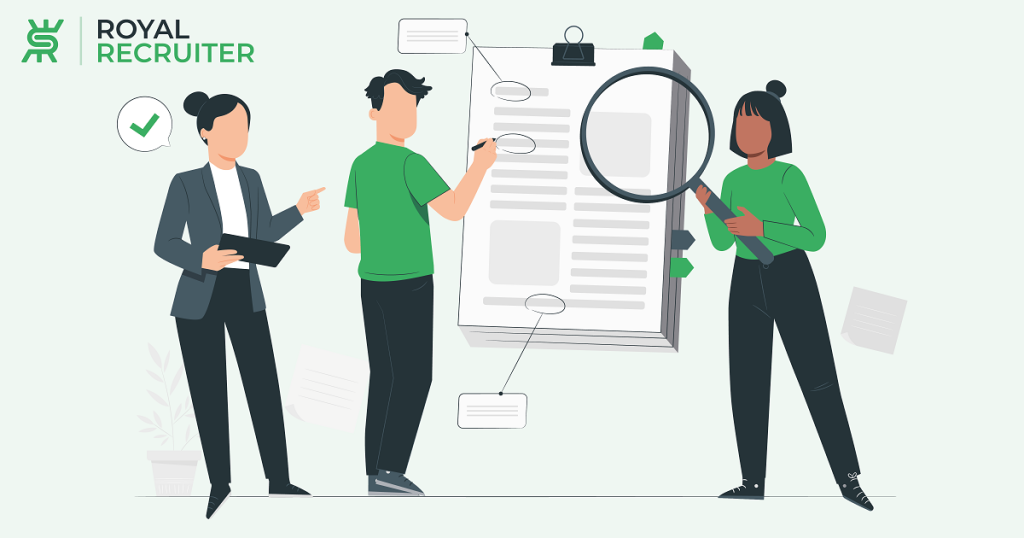
Does Expected Graduation Date Affect Your Hirings
If you’re wondering whether your expected graduation date can have an impact on your chances of being hired.
In general, the expected graduation date should not have a significant impact on your hiring possibility. Employers are more interested in your skills, experience, and qualifications than in your graduation date.
In fact, many employers understand that graduation dates can vary, and they may be willing to work with candidates who are still finishing up their degrees.
On the other hand, many employers want to hire candidates who don’t have ongoing classes, as this can be an obstacle to working full-time.
Here are some cases when the graduation date can affect your career:
If the position requires a specific degree or certification: Some job positions require a specific degree or certification, and your expected graduation date may impact your eligibility for the job.
For example, if a position requires a Bachelor’s degree, but you do not expect to graduate until several months after the job start date, the employer may choose to hire someone who has already graduated.
If the job start date is close to your expected graduation date: Most job positions are required to be filled immediately. If the job start date is close to your expected graduation date, the employer may ask for proof of your graduation or ask you to sign an agreement stating that you will graduate by a specific date. The employer may not hire you if you cannot provide this proof.




